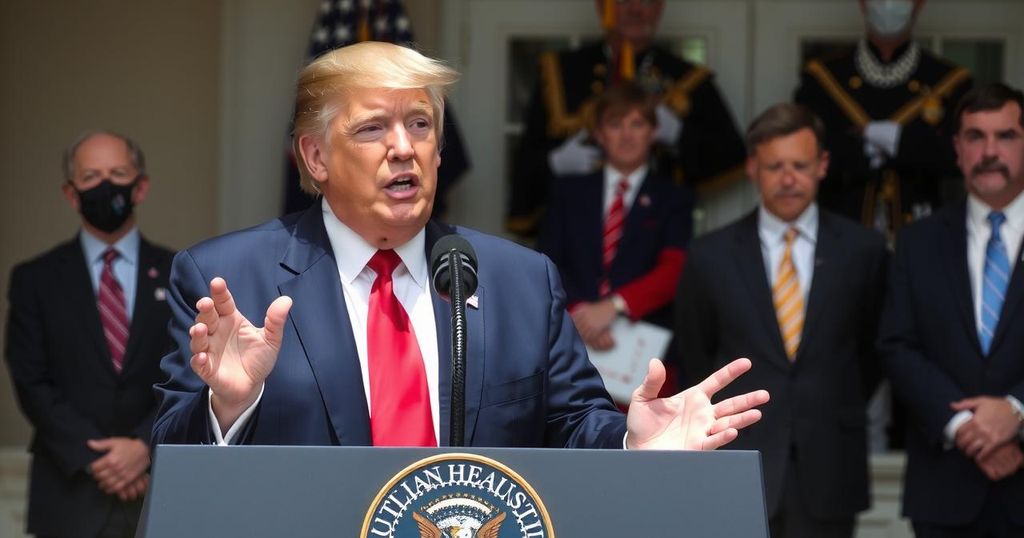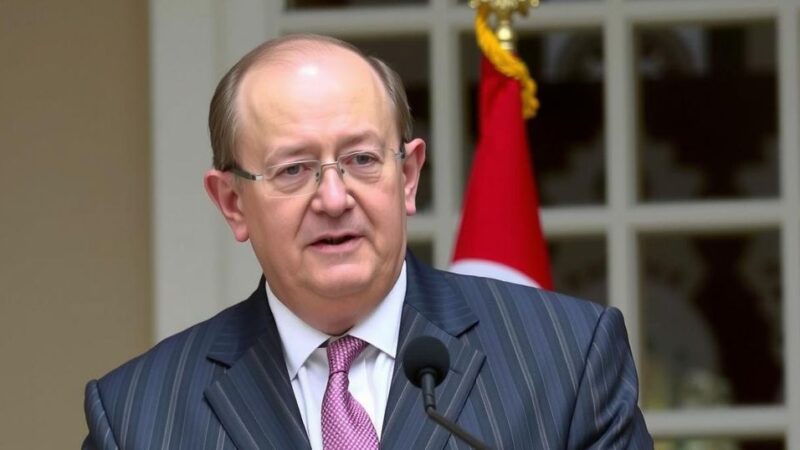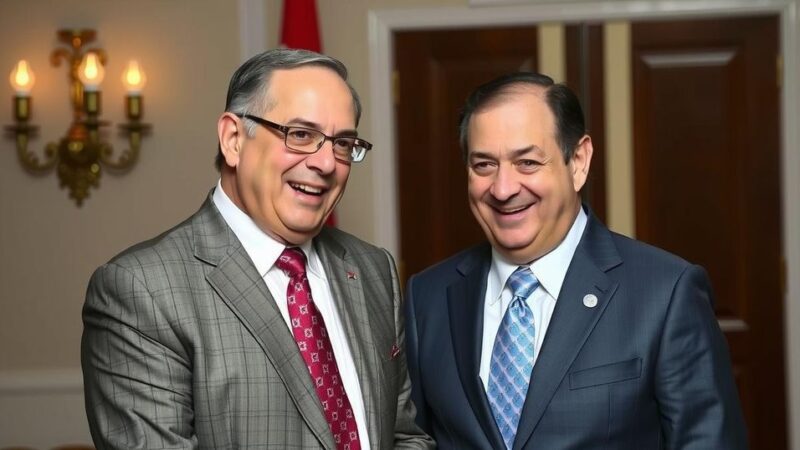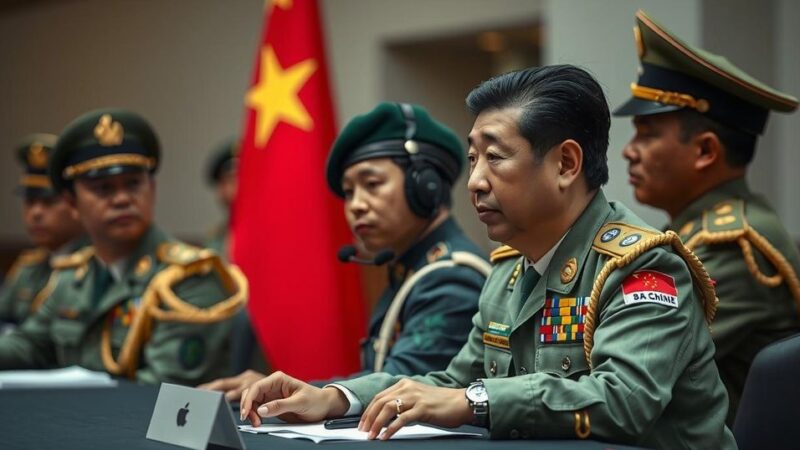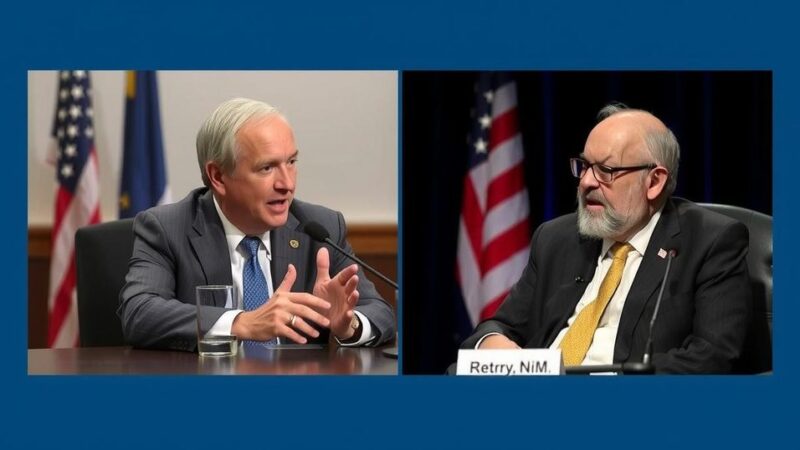In a recent news conference, President-elect Donald Trump made controversial claims regarding NATO, Ukraine, the conflict in Gaza, and territorial ambitions concerning Greenland and the Panama Canal. He expressed sympathy towards Russia’s position against Ukraine joining NATO, warned of consequences in Gaza, suggested economic pressure on Canada, and hinted at potential military action regarding Greenland. His statements have provoked strong reactions from world leaders, emphasizing concerns over sovereignty and U.S. foreign policy direction under his administration.
During a recent news conference at his Mar-a-Lago estate, President-elect Donald Trump addressed significant foreign policy issues, including NATO’s relationship with Ukraine, the ongoing conflict in Gaza, and territorial ambitions concerning Greenland and the Panama Canal. His assertions raised eyebrows among global leaders and spurred media discussions worldwide. Trump’s claims included a sympathetic stance towards Russia’s opposition to Ukraine’s NATO membership and an ultimatum regarding the Gaza conflict, among other controversial statements concerning U.S. relations with Canada and the sovereignty of other nations.
On NATO, President Trump articulated his view that Ukraine should not be admitted into the military alliance, aligning himself with long-standing Russian objections. He stated, “A big part of the problem is, Russia – for many, many years, long before Putin – said, ‘You could never have NATO involved with Ukraine.’” Trump’s comments endorse the idea that Ukraine’s NATO bid could heighten tensions with Russia, a point that contradicts current U.S. policy supporting Ukraine’s eventual accession.
Addressing the situation in Gaza, Trump warned of severe repercussions if an agreement regarding the release of hostages held by Hamas was not finalized prior to his inauguration: “Hell will break out… It will not be good for Hamas, and it will not be good, frankly, for anyone.” His vague comments on Syria’s future U.S. involvement reflected a consistent reluctance to convey strategic plans, which he attributed to military confidentiality.
Furthermore, Trump proposed economic measures against Canada while expressing his desire for Canada to join the United States, although he clarified he would not engage militarily. Canada’s stance was promptly articulated by Prime Minister Justin Trudeau, who emphasized, “There isn’t a snowball’s chance in hell that Canada would become part of the United States.” This underscores the contentious reaction to Trump’s comments on U.S.-Canada relations.
In a more contentious note, Trump did not dismiss the possibility of military intervention concerning Greenland and the Panama Canal, stating, “I’m not going to commit to that.” His assertion that Greenland is essential for U.S. national security aligns with historical U.S. interests in the region. However, Panama’s government firmly rejected any notion of U.S. reclamation over the Panama Canal, asserting, “The sovereignty of our canal is non-negotiable.”
Overall, President Trump’s remarks reflect a continuation of his assertive and often polarizing foreign policy views, prompting an outcry from leaders and officials from various countries, advocating for national sovereignty and territorial integrity.
His comments serve as a stark reminder of the potential for shifts in U.S. foreign policy and the inherent tensions such shifts could provoke on the global stage. This news conference highlights the complexities and ramifications of Trump’s proposed policies as he approaches the presidency.
The political landscape globally is often influenced significantly by the foreign policy stance of the United States. President-elect Donald Trump has a history of controversial remarks regarding international relations, often eliciting reactions from leaders and citizens alike. His perspectives on NATO, in particular, have the potential to affect alliance dynamics, especially in relation to Russian interests in Eastern Europe. The Israel-Palestine conflict remains a key issue in Middle Eastern politics, with current tensions exacerbated by Trump’s comments. The situations surrounding Greenland and the Panama Canal illustrate persistent U.S. interests in strategic territories, where historical agreements and exchanges of sovereignty are critical points of concern for affected nations. Overall, Trump’s emerging foreign policy approach continues to resonate powerfully within the international community.
In conclusion, President-elect Donald Trump’s recent news conference unveiled a series of provocative foreign policy assertions that have stirred significant debate among international leaders and the media. His repudiation of NATO’s expansion into Ukraine, dire warnings regarding the Gaza conflict, and ambitions towards Greenland and the Panama Canal underscore a potentially fractious approach to U.S. diplomacy. These statements serve to highlight the challenges that may arise as Trump transitions into office, particularly concerning established international agreements and national sovereignty.
Original Source: www.aljazeera.com

